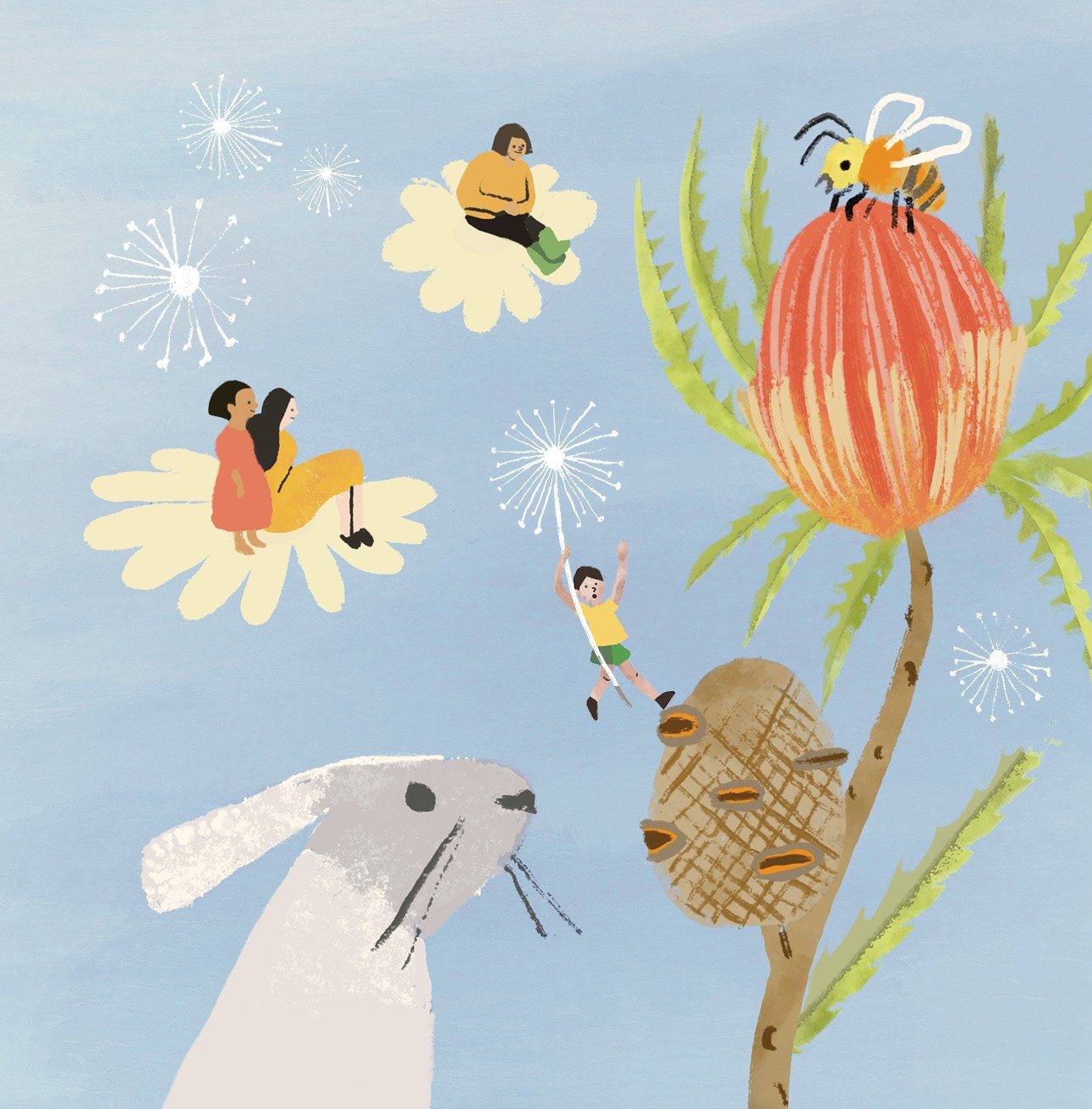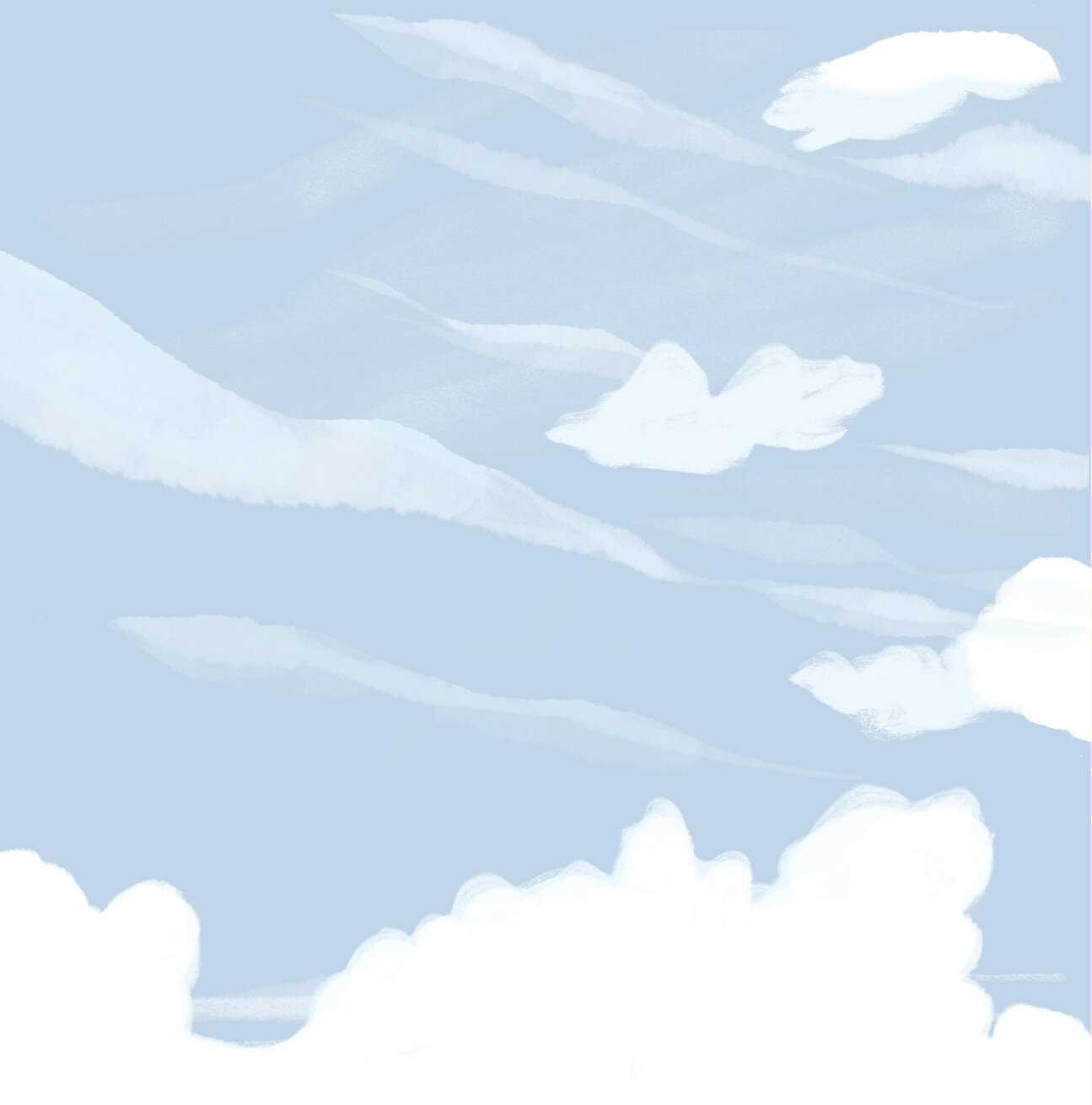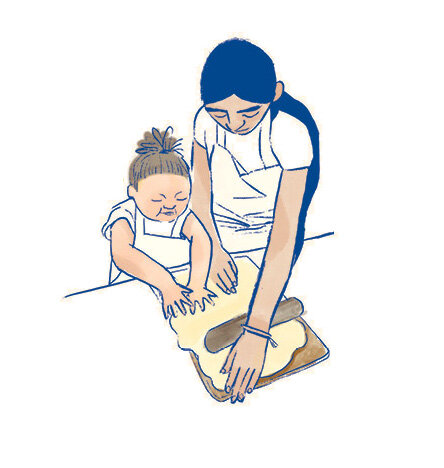
Aozora Shokudo
‘I would like my children to be fond of their language.’
‘I hope that they can nurture their Japanese identity in a fun and enriching way.’
‘I want them to have fun acquiring Japanese language skills.’
We are a Sunday Japanese school for children from Prep to high school, and a learning community based at CERES in Melbourne, Australia.
Our book has just been published!
We invite you to share and celebrate your language and cultural heritage with your community. With this book, outlining how we operate our Japanese language school Aozora Shokudo - meaning ‘blue sky cafeteria’ - we want to help you make your first step in starting your own school in your local community.
It is written in both Japanese and English, and accompanied by illustrations by Sarah Cannning. Your whole family can enjoy discovering the ideas and activities that have helped shape Aozora Shokudo. The ideas written in this book are also for people with a heritage language other than Japanese. One hope is that we can all make our communities come to life and thrive.
AU$20
Our thoughts
Aozora Shokudo is a place where people and smiles gather and become connected, with friends, teachers, and families. Children and parents are welcome to bring ideas and creativity to make it ‘our place’. Our wish is that children with Japanese heritage continue to embrace positive feelings towards the Japanese language, culture and identity. We also hope that our shared times in Japanese creates positive roots for our children’s growth into their adulthoods - being conscious and connected to their choices, future families, people and environment around them.
Shared experience & food
We have named our school ‘Shokudo’ (cafeteria or canteen) because of our Morning tea time. Children work together to make homemade treat using seasonal ingredients, and we gather around a table. This is when we come together as a community and leave feeling satisfied both in body and mind.
5 senses in the nature
The place we gather is within CERES, the ecology park in Brunswick East, Melbourne. We share our community surrounded by native trees and the vibrant colour of seasons, together with Japanese poems and music while we inhale the aroma of homemade morning tea. It feels good to be here.
Integrated learning
Our Main Lesson time offers children with an exploration of the termly theme using Japanese language skills. Children create a project to present at the end of the term as a consolidation of their exploration, inquiry and language skills.
Our classes
Tsukushimbo-tai (4-6 years old)
Tsukushimbo class begins with ‘Teshigoto’ (hands-on activity), where children are encouraged to touch natural materials and immerse themselves in a world of colour and texture. Then children enjoy songs and movement at ‘Morning circle’. At the following ‘Hiragana time’ children learn Japanese characters through a picture and story. The 1.5 hours activity ends with our special ‘Story-telling time’, where teachers tell narratives orally next to the warmth of candle-light.
Primary school class
We start the day with ‘Morning circle’ with poetry reading, songs, and rhythmic movement. ‘Main lesson’ follows where children explore a theme and create a project. Then children enjoy the sensory experience of preparing and eating seasonal food together at ‘Morning tea time’. Our Primary school class brings joy and smiles to children and teachers. This is 2.5 hours activity between 9:30-12:00.
High school class (VCE)
Students in this class understand what it means to have chosen to come to Japanese lessons. We offer more language acquisition based learning to individual students’ needs. Learning through authentic experience is important too and students sometimes have activities with younger children or having guests teachers.

Meet the Team
-

Naoko
Director
-

Kiyoko
Primary school class
-

Fuyuko
Primary school class
-

Ayako
Morning tea making
-

Naho
Primary school class
-

Chiharu
Tsukushimbo
-
Kari
Primary school class
-
Chiaki
High school class
-
Sae
Tsukushimbo










